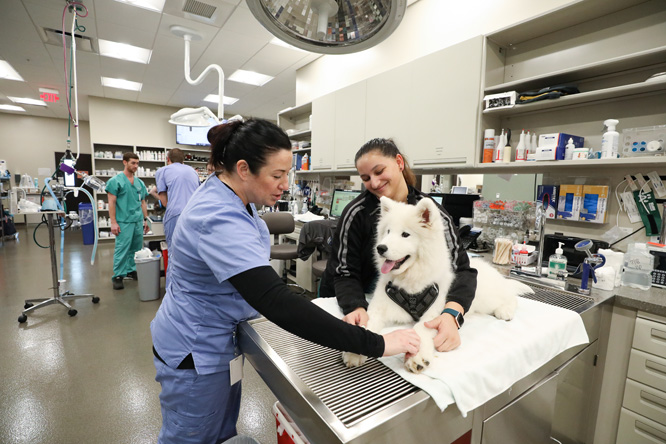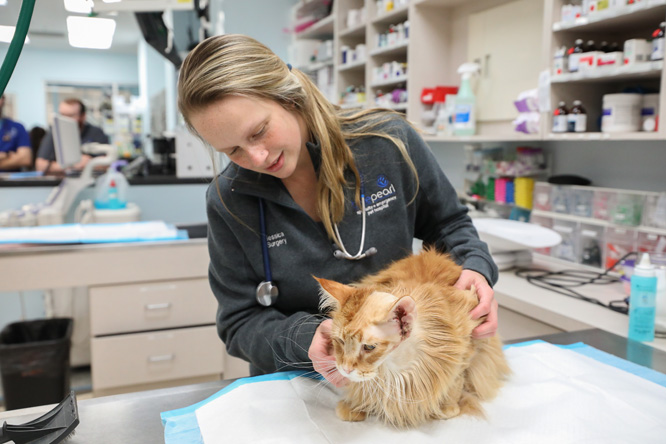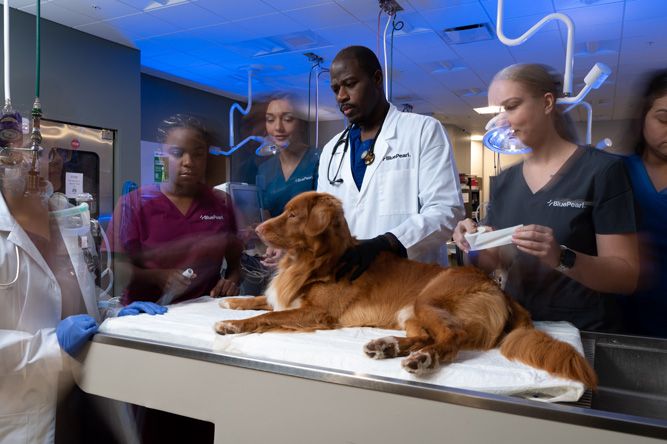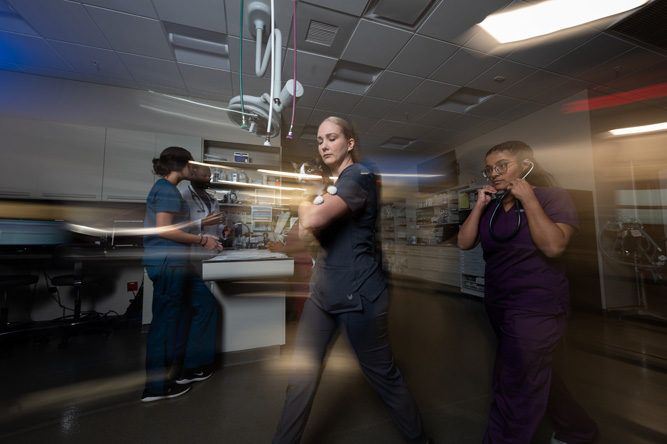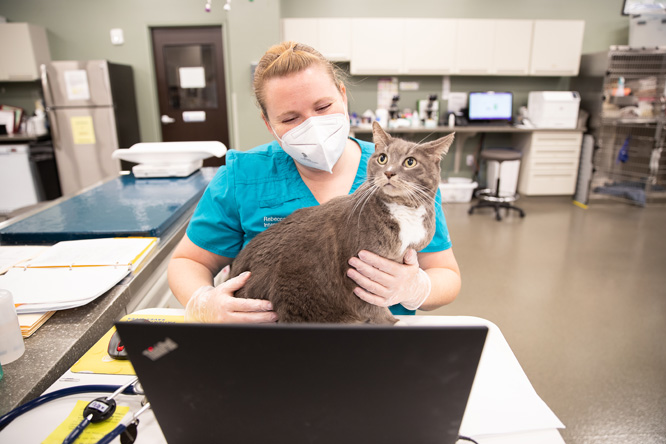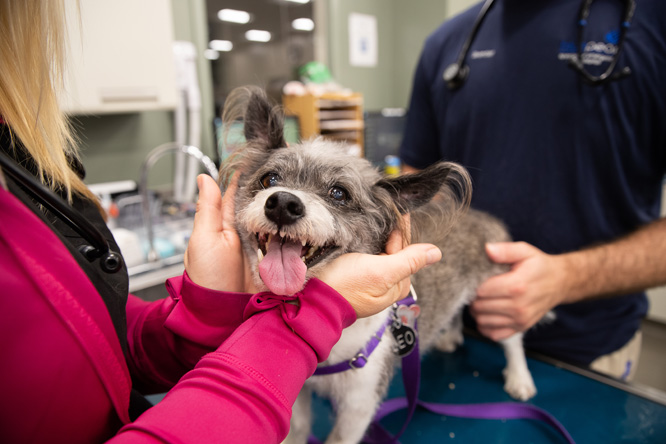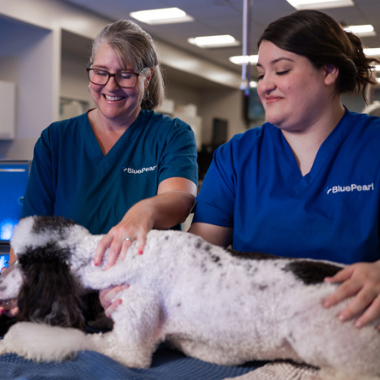Pet emergency medicine by BluePearl.
Pet emergencies can be scary – we’re here to help you handle them.
We understand that seeing your pet sick, hurt or in distress can be stressful – especially if you don’t know what’s wrong. Fortunately, our experienced ER clinicians are prepared to take action and help.
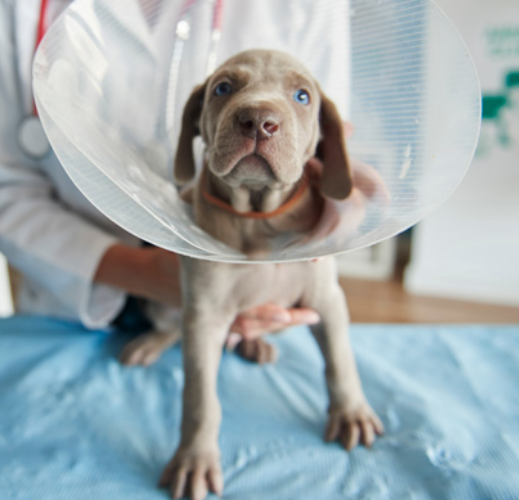
Common pet emergencies.
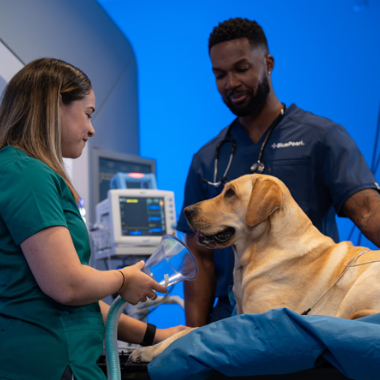
Acting quickly in an emergency may save your pet’s life.
If your pet is experiencing an emergency, you’ll have an entire veterinary team helping them so you can get back to what matters most – spending precious moments together.
- Accidents, injuries and trauma (hit-by-car, animal attacks, etc.)
- Bleeding
- Bloat (gastric dilatation volvulus, or GDV)
- Collapse or unresponsiveness
- Complications from chronic diseases
- Difficulty breathing
- Straining to urinate
- Ingestion of medications, poisons or objects
- Seizures
- Vomiting and diarrhea
Our emergency team.
Experience makes all the difference.
Our emergency team is made up of veterinarians, vet technicians and assistants, and support staff with rigorous training and experience in specialty medicine. The team works hand in hand to provide the comprehensive, compassionate care your pet needs and deserves. Because we’re a multidisciplinary hospital, the team can consult the expertise of other specialty departments, too.
Rachel McClellan
DVMDr. Rachel McClellan enjoys treating conditions such as urethral obstructions, chocolate toxicity, and rodenticide toxicity because they can have fast and rewarding recoveries. She also finds it rewarding to treat pyometras, perform complicated wound repairs, and remove foreign bodies.
- Internship, Small Animal Medicine and Surgery, Affiliated Animal Care, Virginia Beach VA
- Doctor of Veterinary Medicine, Oklahoma State University, Stillwater
- Bachelor of Science, Biology, Texas Christian University, Fort Worth
Dr. McClellan enjoys snowboarding, running, cooking and going on adventures with her dog, Pistol Pete, a beagle/shorthair pointer cross.
Kalina Spiczka
DVMSkilled in all aspects of emergency medicine, Dr. Kalina Spiczka particularly enjoys critical cases and soft tissue surgery.
- Doctor of Veterinary Medicine, University of Minnesota, St. Paul
Dr. Spiczka and her husband have a daughter. The family has three dogs, three cats and many horses who they enjoy raising, training and showing. They also like hiking and spending time at the lake.
What to expect.
We know an unexpected trip to the emergency pet hospital can be stressful, and we want you to be prepared so you have one less thing to worry about. Our entire BluePearl team will be with you every step of the way.
Before your visit
- If possible, call us before arriving so we can discuss your pet’s condition, help you with directions and prepare our team.
- Collect your pet’s medical records, current medication or any historical information.
- If your pet has eaten something potentially toxic, bring the substance with you if it’s safe to do so.
During your visit
- When you arrive, let us know if you need help bringing your pet in from the car, and we’ll be ready to assist you.
- Our team will perform an initial triage exam on your pet to assess their condition.
- To stabilize your pet, we may need to administer IV fluids, pain medications, oxygen therapy and sometimes blood or plasma transfusions.
- Before you leave, you’ll receive discharge instructions and a list of any recommended medications.
After your visit
- We’ll let your family veterinarian know about your pet’s condition and the treatment they receive at BluePearl. This communication is key in the ongoing management of your pet’s care.
- You know your pet better than anyone, and you play a crucial role in any follow-up treatment necessary. If you have any concerns about providing care at home (such as giving medication or monitoring your pet’s symptoms), let us know – we’re here for you.
